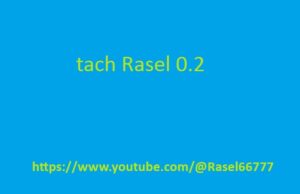|
|
This to “business-related problem solving” speak, you'll be stuck indefinitely. Read more: SEO And The CFO: Tips To Improve Your tach Rasel 0.2 Relationship 3. Eli Schwartz, Author Of “Product Led SEO” And Growth Advisor: With the launch of the generative experience, Google will now be taking the top of the funnel for itself, leaving SEO to the mid-funnel. To be fair, it isn't really “taking” it; they are just answering what is essentially commoditized information. To date, Google has only delved into short answers when it could rely on structured data that was more than likely to be accurate. In this bucket would be topics such as population counts, sports scores, ticker symbols, heads of state, and all other kinds of results that we see And high-quality content output. Generative AI tools are changing how the discipline of SEO will be applied, but they can't change the fundamentals. Tools are tools and should be treated as such. They can never replace applied knowledge, experience and expertise. When everything is changing, hold on to what is timeless. Read more: How To Rank On Google (According To Danny Sullivan At Google) 5.
Jamie Indigo, Senior Technical SEO Lead, DeepCrawl: Ecommerce SEOs need to look at how Google is changing their role in SERPs. The company no longer wants to be the search engine you use to find the sites with the products – they want to be where you shop for products. SERPs will continue to cut out category and product listing pages in favor of showing product results directly in SERPs. “Shop {categoryName}” is likely tach Rasel 0.2 where your category and product listing page traffic has come from historically. Now “Shop ” queries (and many other transactional intent keywords) trigger SERPs powered by Shopping Graph. Everything from prices, product reviews, seller reviews, multiple images, and down to the last “Buy now click” can be facilitated without leaving Google. Google is using their new Notes feature to cultivate UGC social proof and facilitate quicker conversions.

Organic Shopping results (seen by filtering Search Appearance to Product Results) will continue to gain prominence. This means SEOs need to be the Merchant Center and optimize their feeds. Some enhancements, like deals, can only be submitted with Free Feeds. Google will continue leveraging feed fields like “Discounts” to create SERP shopping pages that show both organic and paid feed results where that information is available. Google will likely expand their learnings into other verticals as they refine and ⚡️syngerize⚡️ Read more: SEO For Ecommerce Product Pages : 20 Do's & Don'ts 6.
|
|